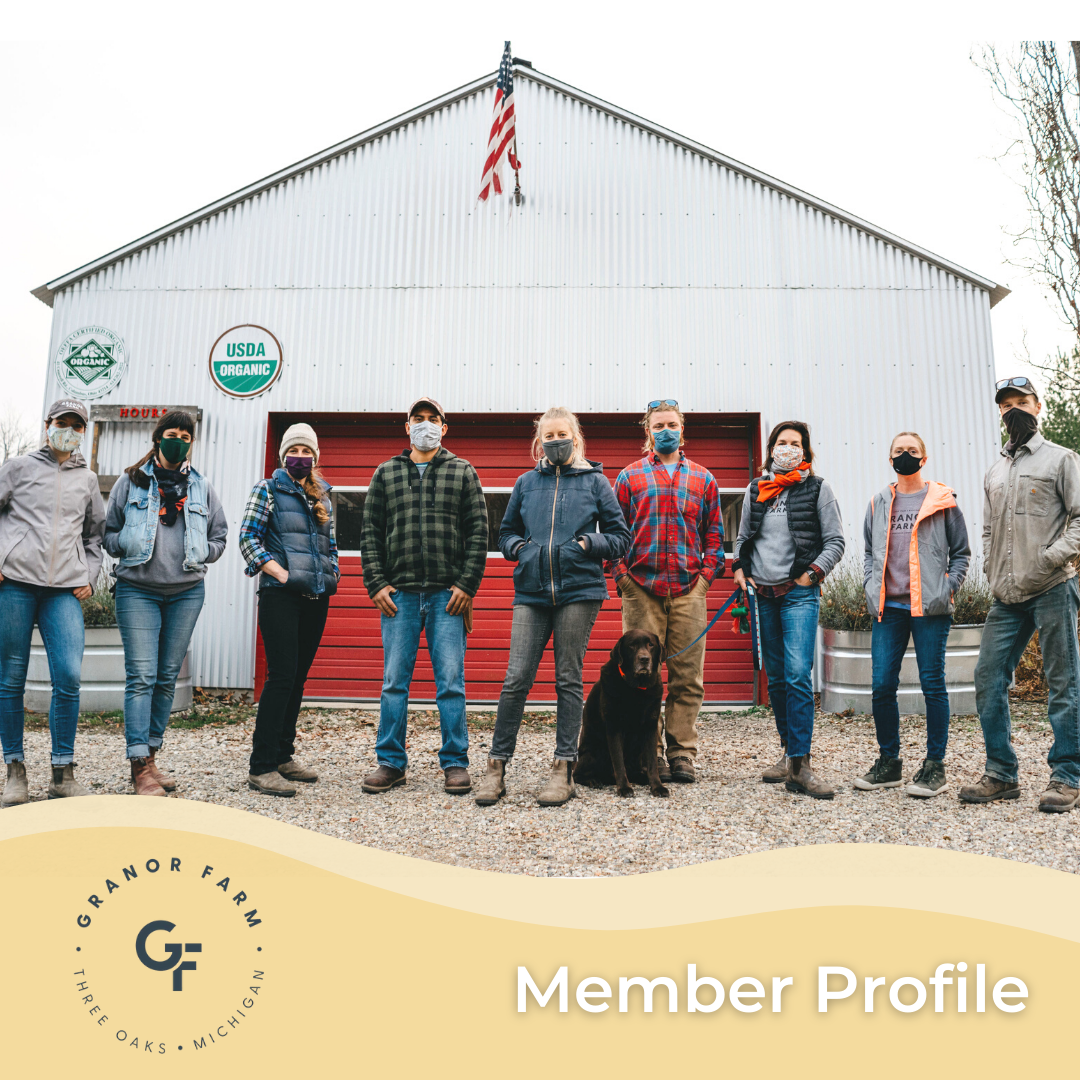Michigan diversified farm offers a CSA, grains for regional processors and end-users, and on-farm dinners.


Granor Farm is a diversified, certified organic farm in Southwest Michigan; they joined in June 2020, and have been a lively part of our network ever since. We spoke with Wesley Rieth, operations manager, earlier this week when the temperature was 3° Fahrenheit. He was enjoying the weather, glad to have a ‘real’ winter after many irregular ones.
“We've relied heavily on the support of fellow AGC members over the past few years,” said Wesley, naming Halee and John Wepking at Meadowlark Organics and the whole crew at Janie's Mill as wonderful mentors. Jenny and Mark from Bird Dog Baking have been good business friends, too; the Bird Dog team's focus on including a diversity of grains in their recipes, Wesley said, supports their farm’s goal to improve rotations because, “We want everything we grow to be an ingredient, not a commodity.”
Granor Farm began in 2006 as a farmers’ market and community-supported agriculture (CSA) vegetable operation. Eight employees now work full-time year-round, with additional help during the growing season. In 2014 they added grains, selling to an organic feed mill in Indiana as they developed their skills and prepared to enter food-grade markets. Now they focus their several hundred grain acres on supplying Michigan malt houses, distilleries, breweries, small-scale bakeries, and mills. This style of marketing makes farming more enjoyable, said Wesley, adding that “talking to the people who use our grains is so rewarding.”
Selling grains and flour directly to individual consumers has always been a part of the farm's long term vision. The idea of cleaning and packaging grains in this way for their community was not without complication, but as other routes to flour closed in the spring of 2020, the need to address the issue caused it to percolate to the top of their list. Janie’s Mill custom-milled some grain for them which convinced them to devote more acreage to bread wheat for harvest this year.

Last fall, Wesley and his co-conspirator Andrew Harris planted Violetta barley, Danko and Brasetto rye, and Erisman and Turkey Red wheats. There’s land reserved for oats too, but the Granor team stays away from spring-planted cereals because their seasons have been too wet in recent years for the crops to be successful. They will continue an ongoing experiment of adding more buckwheat acres to their rotation, and intend to try planting sweet corn and dry pole beans together this year. The sweet corn will be harvested by hand, and the remaining stalks will go through the combine with the pole beans in the fall, providing a biomass cushion and hopefully preventing the precious beans from splitting during harvest.
Wesley and Andrew think a lot about their grain rotations and finding the right seeds. They want to make everything on the farm as environmentally resilient as it can be, and ensure that the crops they tend suit cooking, baking, brewing, and distilling customers. “It is really challenging finding grains that fit the seasonal variables that are our reality in this particular spot in Michigan,” said Wesley.
No matter how far you live from Southwest Michigan, you can enjoy some of the Granor team’s talent in your own home; their chef, Abra Berens, wrote a beautiful cookbook, Ruffage: A Practical Guide to Vegetables., which is extra enjoyable during these cold months.
To keep up with the goings on at Granor Farm, follow along using the links below.
